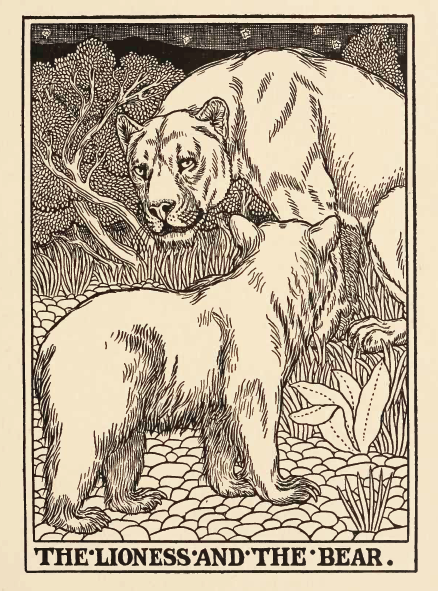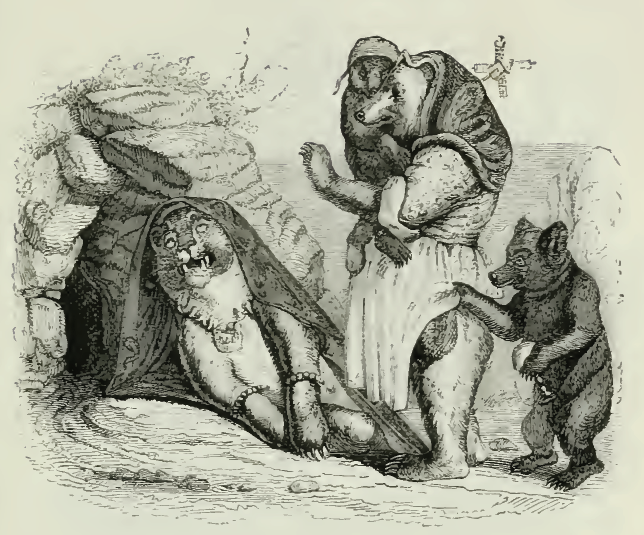Click here for a SLIDESHOW of all the Griset images.
M0026 = Perry010. Source: De Furia 7. This is Perry 10. Compare the story of the people and the camel, #144.
26. The Lion and the Frightened Fox. The fox, who had never seen a lion, when she first encountered him by chance, at the first sight was so thoroughly terrified that she all but perished on the spot. The second time, however, that she ran into him, she was frightened again, but not so much as before. Finally, the third time that she saw him, she was so bold as to come up and hold a conversation with him. Things which are terrifying are rendered more agreeable by familiarity.
26. The Lion and the Frightened Fox. The fox, who had never seen a lion, when she first encountered him by chance, at the first sight was so thoroughly terrified that she all but perished on the spot. The second time, however, that she ran into him, she was frightened again, but not so much as before. Finally, the third time that she saw him, she was so bold as to come up and hold a conversation with him. Things which are terrifying are rendered more agreeable by familiarity.




.jpg)


